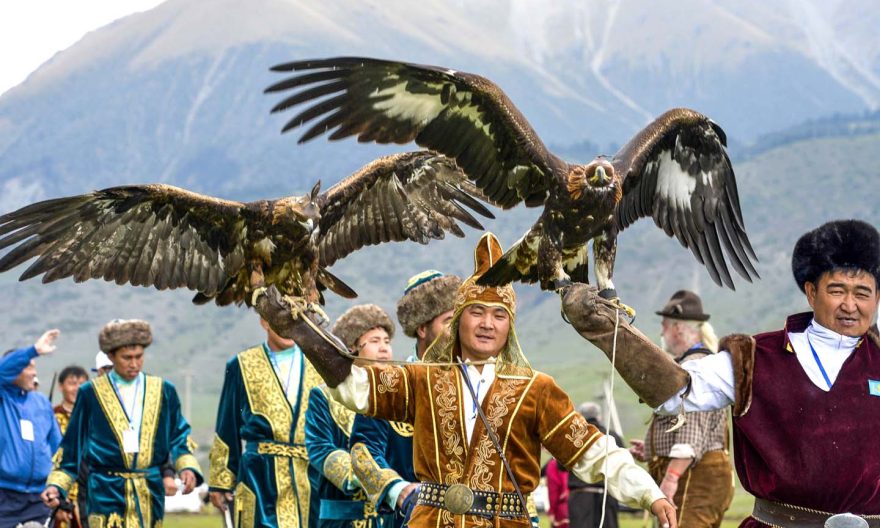
Traditional games have always been an integral part of the cultural heritage of nations around the world. In various corners of the Earth, they reflect lifestyles, philosophies, values, and even the skills necessary for survival in different environments. In recent years, there has been a growing interest in preserving and popularizing these traditions through international events and festivals, such as the World Nomad Games. One of the bright examples of cultural wealth includes the nomadic games held in Kazakhstan and the traditional African game of Oware (also known as “mancala”). Both of these phenomena unite different peoples, despite geographical and cultural differences, showing how games can serve as bridges between continents and traditions.
World Nomad Games: Reviving ancient traditions
The World Nomad Game is an international sporting event that gathers representatives of nomadic peoples from all over the world. Initially, the games were organized in Kyrgyzstan, but in 2024, the right to host them was handed to Kazakhstan, a country where nomadic traditions and the spirit of the steppe still play a significant role in national identity.
The program of the World Nomad Games includes many disciplines reflecting the nomadic way of life. Among the most famous competitions are belt wrestling (“kazakhsha kures”), horse racing, archery, and equestrian games such as “kokpar” (a game resembling polo but using a goat carcass instead of a ball). These games are not just sporting contests — they represent a deep immersion into nomadic traditions, demonstrating skills essential for survival in the steppe.
Today, almost all peoples of Africa and Asia have similar games. In West Africa, these include oware and owa, while in Kazakhstan and Kyrgyzstan, there is “togyz kumalak,” and in India, games such as “pallanghuzi” and “olinda kaliya” are popular. The rarest game in this family is the three-row “gabata” from Ethiopia and Somalia, while the most complex are the four-row “bao” and “omweso” from Central Africa. There are many names, and the number of rows, holes, and stones vary, but the basic principles remain similar: occupy a hole that gives you the right to capture stones from your opponent, and ultimately accumulate more stones than your adversary.
African Game of Oware: Ancient wisdom in a strategic game
Oware is one of the oldest and most widespread games in the world, known by different names across various countries in Africa and the Middle East. It belongs to the family of mancala games, where players move seeds or stones across holes on a board, aiming to capture as many as possible.
The origins of oware are lost in antiquity, and it is believed to have emerged in Ancient Egypt or modern-day Ethiopia. Over time, the game spread across the continent and became an important part of the cultural life of various African societies. Oware not only develops strategic thinking and logic but also teaches patience and respect for the opponent. The game is often used to pass down cultural values and traditions from one generation to the next.
Uniting cultures through games Staff reporter: What unites the world nomad games and the African game of Oware?
At first glance, these seem like two completely different worlds — dynamic and physically demanding nomadic games and the calm, strategic African game. However, upon closer inspection, it becomes clear that both serve as important cultural markers, preserving the traditions of their peoples.
Both nomadic games and oware emphasize the importance of community and the transmission of knowledge. During the world nomad games, it’s not just athletes competing — the event brings together entire families, nations, and nomadic peoples, fostering cultural exchange and the preservation of traditions. Similarly, Oware is not just a pastime but a significant element of cultural heritage that still plays an important role in the social life of many African peoples.
In a modern world moving towards globalization, cultural traditions and customs are often at risk of being lost. However, events such as the world nomad games and the preservation of ancient games like oware show that traditions can not only survive but thrive, uniting nations through shared values and respect for the past.
These games serve as a reminder of how crucial it is to preserve and pass on traditions that form an integral part of a people’s identity. Whether playing oware or watching horse racing in the Kazakh steppes, we are not just enjoying entertainment, but are becoming part of the centuries-old history and wisdom that humanity has accumulated over its long journey.
BY STAFF REPORTER
THE ETHIOPIAN HERALD WEDNESDAY 28 AUGUST 2024




